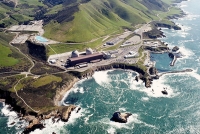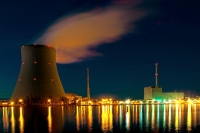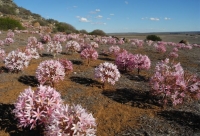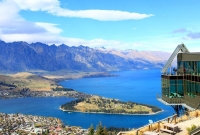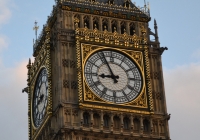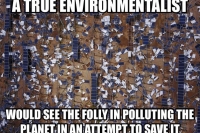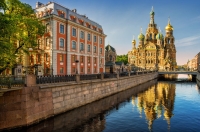
This section covers historical and present day highlights of people in Europe and Russia. It exams what can be done to make the future better than the past and present, including how plentiful, reliable energy can help.
Paul Driessen, senior policy analyst for the Committee For A Constructive Tomorrow: Foreign tourism in France has been the highest in the world. It has beautiful countrysides, mountains, sea coasts, towns and cities. It also has very high taxes and dogmatic governments when it comes to the illusion of catastrophic man-made global warming from use of fossil fuels. In 2018, the French government imposed more taxes on transportation fuels supposedly to save the world from catastrophic man-made global warming. Common French citizena had enough. They put on their gilets jaunes - yellow safety jackets required in all cars and blocked streets across the country. Everywhere, France is rioting. France is burning. It is ugly. French President, Emmanuel Macron, fled Paris and cancelled the additional carbon tax. This is not the end, but it is the beginning of the end of dogmatic government policies about supposed catastrophic man-made climate change, in France and across Europe.
Semen (Sam) Dukarevich, specialist in underground cryogenic structures: This is a very short but important description of Russia and some of the former Eastern European countries. Dr. Dukarevich survived WW II as a young boy and all the years of the Soviet Union. He describes Russia today with valuable suggestions about the future.
John Shanahan, President of Environmentalists for Nuclear - USA: Modern use of energy, primarily fossil fuels, hydro-electric and nuclear will enable mankind to live better, more peacefully, have quality education, find better jobs, protect the environment and preserve wildlife habitat. This presentation shows a few examples of people in seven countries in Europe and on the Mediterranean working for and enjoying an amazing world.
Wade Allison, Emeritus Professor of Physics, Keble College, Oxford University, UK: Wade Allison is one of Europe's leading science professors and public educators on the subject of low dose radiation. In this essay, he offers a short reflection on where Europe and the UK are today and where they are going.
Ingvar Kamprad, IKEA: No person is without fault. Ingvar Kamprad, got most things right and was a tremendous business leader. Compare his life with those of many elected officials. Also compare his life with people who accomplish very little in the real world of business and scientific, medical, and technology, who just criticize sound advances saying they are dangerous.
Maurice Allais, Nobel Prize in Economics, 1988, Memorium by Marjorie Mazel Hecht: French thinker Maurice Allais, who died Oct. 9, 2010, is alone among the Nobel Laureates in economics in making the general welfare, and physical reality, central to his economic theories. For this he deserves our thanks. But Professor Allais was more than just an economist; he wrote many books and papers on history, both ancient and modern, and on various political systems.
James Lovelock, Environmentalists, Chemist, Earth Scientist and John Shanahan, Civil Engineer and President of EFN-USA: This article presents ideas and quotes from one of the world's most respected environmentalists, James Lovelock, a funny, short video about HydroCarbon Man, and thoughts for the future by John Shanahan, Civil Engineer and President of Environmentalists for Nuclear - USA. We will have a much better future by staying with realists with moderate, middle of the road, sound leadership with broad consensus rather than radical extremists on the left or right.
Bruno Comby offers his perspective on the 2016 US and 2017 French presidential elections. Massive amounts of clean, reliable energy are needed to support the world population and help protect the environment, maintain wildlife habitat and preserve biodiversity. Otherwise, the world will simply revert to the way it was before use of fossil fuels. Plentiful energy has tremendously improved the lives of many. With sound government policies and worldwide cooperation, it can improve the lives of most of humanity. The present elections in the USA and France are case studies of the challenges governments face and have some pointers of how governments can do better.
Werner Herzog, film maker: He has produced, written, and directed more than sixty feature- and documentary films. American film critic Roger Ebert said that Herzog "has never created a single film that is compromised, shameful, made for pragmatic reasons, or uninteresting. Of particular interest for EFN - USA are Herzog's appreciation of everyone's reliance on the modern way of life, with abundant energy and modern technologies. He says that there is no turning back to life without abundant energy and advanced technologies.
Judith Curry, Pope Francis: From the Vatican - World leaders meeting at the Vatican for a conference on climate change have issued a final statement, declaring that “human-induced climate change is a scientific reality” and “its decisive mitigation is a moral and religious imperative for humanity.” The statement says that humans have the technological and financial means, and the know-how, to combat human-induced climate change, while at the same time eliminating global poverty. Judith Curry - The debate on climate change has centered on the science and economic cost/benefit analyses – both of which are dominated by deep uncertainties. The moral dimensions of the climate change problem have received short shrift.


